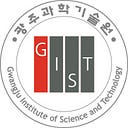Gwangju Institute of Science and Technology Scientists Investigate Macrocyclic Peptides as New Drug Templates
Some of these molecules can cross the cell membrane and may open doors to novel drugs for currently untreatable diseases.
Despite advances in modern medicine, many diseases remain untreatable because modern drugs cannot interfere with key intracellular protein–protein interactions. Now, scientists from the Gwangju Institute of Science and Technology in Korea investigate under-explored ring-like molecules called “macrocyclic peptides” as potential templates for novel drug design, shedding light on the relationship between their molecular conformation and cell membrane permeability. Their findings could pave the way for treating the currently “undruggable” diseases.
Thanks to our understanding of molecular biology, we have made tremendous progress in medicine, with scientists shedding light on the molecular mechanisms of several diseases. However, despite knowing how these diseases occur and develop within cells, some remain untreatable due to the inability of currently available drugs to reach their targets. One such example of an unreachable drug target is “protein–protein interactions (PPIs)” that occur inside cells. Most drugs cannot interfere with PPIs due to their small sizes, even if they can penetrate the cell membrane. On the other hand, antibody proteins can be engineered to block virtually any PPI but cannot access the inside of cells. So, are there any other alternatives for targeting intracellular PPIs?
Right now, the answer is most definitely “maybe.” One promising approach might involve using macrocyclic peptides — chains of amino acids that form a ring-like structure. In particular, a peptide called “Cyclosporin A” (CsA) has a peculiar property called “chameleonicity” that helps it cross cell membranes. Put simply, CsA can change its molecular conformation depending on its surroundings, which helps it permeate through the lipid bilayer of cellular membrane. While CsA could certainly be used as a template for designing membrane-permeable drugs, it has some disadvantages. First, it is costly and tedious to synthesize in large quantities because of an unusual fungal amino acid called MeBmt. Second, it causes various unwanted pharmacological side effects, such as immunosuppression.
Considering these limitations, a team of scientists led by Professor Jiwon Seo from the Gwangju Institute of Science and Technology (GIST) in Korea turned their attention to “Cyclosporin O” (CsO), a similar yet less-studied macrocyclic peptide without similar problems. In their latest study published in the Journal of Medical Chemistry, the team investigated various aspects of CsO and its derivatives and compared them with CsA. This included testing for an optimized synthesis method, nuclear magnetic resonance spectroscopy characterizations, molecular dynamics simulations, cell permeability assessments, and in vitro and in vivo tests. “The main purpose of our study was to establish the molecular conformation–membrane permeability relationship of CsO and its derivatives compared to that of CsA as well as evaluate its potential utility as a scaffold for peptide drug designs,” explains Dr. Seo. Their paper was made available online on 7 June 2021 and was published in Volume 64 Issue 12 of the journal on 24 June 2021.
Overall, the findings of this study add a piece to the puzzle of designing cell membrane-permeable drugs with macrocyclic peptides, such as CsO, playing a potential leading role. “Once we establish a more solid understanding of fundamental structure–property relationships, we envision that macrocyclic peptides could be used to tackle currently ‘undruggable’ targets, leading to new treatments for cancer, neurodegenerative disorders, metabolic diseases, and so on,” concludes an optimistic Dr. Seo.
For the sake of anyone dealing with such maladies, let us hope their vision materializes soon!
Reference
Authors: Dongjae Lee (1), Sungjin Lee (1), Jieun Choi (1), Yoo-Kyung Song (2), Min Ju Kim (2), Dae-Seop Shin (3), Myung Ae Bae (3), Yong-Chul Kim (4), Chin-Ju Park (1), Kyeong-Ryoon Lee (2), Jun-Ho Choi (1), and Jiwon Seo (1)
Title of original paper: Interplay among Conformation, Intramolecular Hydrogen Bonds, and Chameleonicity in the Membrane Permeability and Cyclophilin A Binding of Macrocyclic Peptide Cyclosporin O Derivatives
Journal: Journal of Medical Chemistry
DOI: https://doi.org/10.1021/acs.jmedchem.1c00211
Affiliations:
1. Department of Chemistry, Gwangju Institute of Science and Technology (GIST)
2. Laboratory of Animal Resource Center, Korea Research Institute of Bioscience and Biotechnology (KRIBB)
3. Bio Platform Technology Research Center, Korea Research Institute of Chemical Technology (KRICT)
4. School of Life Sciences, Gwangju Institute of Science and Technology (GIST)
About the Gwangju Institute of Science and Technology (GIST)
The Gwangju Institute of Science and Technology (GIST) is a research-oriented university situated in Gwangju, South Korea. As one of the most prestigious schools in South Korea, it was founded in 1993. The university aims to create a strong research environment to spur advancements in science and technology and to promote collaboration between foreign and domestic research programs. With its motto, “A Proud Creator of Future Science and Technology,” the university has consistently received one of the highest university rankings in Korea.
Website: http://www.gist.ac.kr/
About Professor Jiwon Seo
Jiwon Seo received a PhD in chemistry from Northwestern University, USA, in 2006. After conducting postdoctoral research at Stanford University, USA, he joined the Gwangju Institute of Science and Technology (GIST) in Korea in 2010 as a faculty member. He is currently a Professor in the Department of Chemistry at GIST where he investigates the synthesis, structure, and biomedical function of peptides, peptoids, and macrocyclics.
